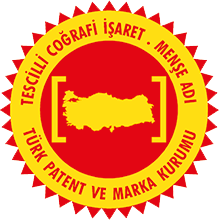Olive oil, which has been in our lives for many years as both a delicious kitchen ingredient and a strong health supporter, also has unique contributions to our body. There is interesting information about what role this valuable oil plays in traditional medicine in the regions of our country where olives and olive oil are used abundantly. Olive oil, which is one of our cultural heritages, is a vegetable oil that is frequently used in our diet. In addition to its health effects in nutrition, it is also used in folk medicine thanks to the phenolic compounds it contains.
Folk Medicine and Olive Oil
It becomes clear how wide the usage areas of olive oil are in folk medicine. Methods of treating diseases through people’s own efforts are considered folk medicine. Olive oil has an important place in many health problems, from psoriasis to diaper rash, from constipation to ringworm, from burns to fractures and dislocations.
It has been understood that applying olive oil to the body heals wounds and gives vitality and shine to the skin. Olive oil, whose healing properties on wounds were learned, was kept in small glass bottles as a valuable medicine. For centuries in Anatolia, olives, olive leaves and olive oil have been used in folk medicine, very close to the uses of today’s medicine.
Various Usage Methods of Olive Oil
The value our country attaches to olive oil shows that it does not see it only as cooking oil. For example, in cases of sprains and joint pain, the painful area is massaged with olive oil. Olive oil is preferred for irritated skin areas, hair and hand problems. In cases such as sore throat, stomach ailments and constipation, olive oil is consumed directly.
It is known that people living in Anatolia from ancient times rubbed bruises and bruises with olive oil, nourished their hair with olive oil, applied olive oil to soften the skin and remove calluses, rinsed olive oil in their mouth to whiten their teeth, those suffering from constipation drank olive oil, and used olive oil for headaches and rheumatism pains.
The Place of Olive Oil in Modern Medicine
Nowadays, olive oil is becoming more recognized and important in modern medicine. This health heritage shows that olive oil has an important place in our lives not only with its taste but also with its effects on health. Research scientifically supports the positive effects of olive oil on heart diseases, Alzheimer’s, diabetes and skin health. This shows that olive oil has an important place not only in traditional medicine but also in modern medicine.
Studies on heart diseases show that olive oil supports heart health. Olive oil protects cardiovascular health by increasing good HDL cholesterol and reducing the oxidation of bad LDL cholesterol. The Mediterranean diet is an important example showing that olive oil reduces the risk of heart disease.
Research on Alzheimer’s disease reveals that olive oil may slow the progression of this disease. Olive oil contains antioxidants and anti-inflammatory compounds that protect brain cells. These ingredients help preserve cognitive functions by preventing damage to brain cells. In terms of its effects on diabetes, olive oil attracts attention with its ability to regulate blood sugar and increase insulin sensitivity. Olive oil, which is effective in reducing the risk of type 2 diabetes, is considered an essential part of a healthy diet.
This valuable health heritage proves that olive oil has an important place in our lives not only with its taste but also with its effects on health. From traditional medicine to the laboratories of modern medicine, olive oil remains an indispensable natural resource for our health. This miraculous oil, which is our cornerstone, will always have a valuable place in the world of health and nutrition.




